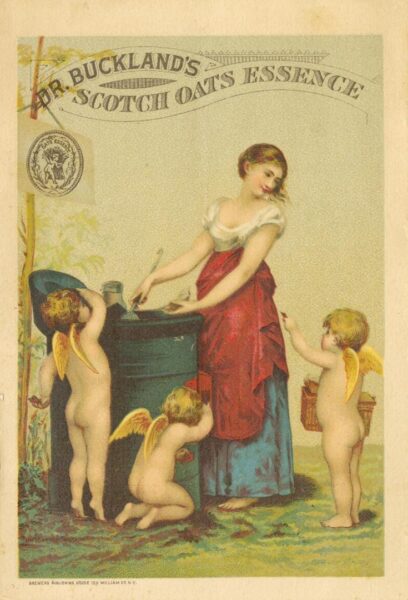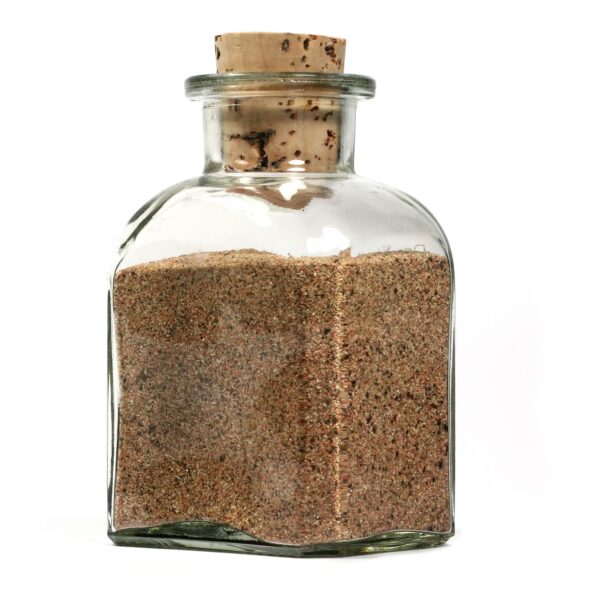For part 1 of this article, click here. There’s also a transcript of an 1818 Rakasiri advert here.
In 1828, a ‘nervous young man’ who had wasted more than 10l. on the Cordial Balm of Rakasiri went to a magistrate and succeeded in getting his money back. During the proceedings, the Balm’s proprietors, Charles and John Jordan, threatened to make it public that he had venereal disease, but he stuck to his guns and they backed down, claiming that they were returning the money out of respect for the man’s character and not because they were guilty.
Shortly afterwards, a well-to-do young woman, Miss May, consulted them for asthma and ended up 15l. worse off, some of which amount she had to borrow from her sister. Finding her breathing worse and the fiery medicine affecting her stomach, (as mentioned in the previous post, it was highly concentrated alcohol) she heard about the young man’s success and also asked for her money back. The Times reported in early 1829 that
To this, the “doctors” answered, that if Miss May attempted to take any such step as that young man had taken, that they would disclose the real nature of the complaint she was labouring under to her friends, which would ruin her character.
Far from being horrified into silence, Miss May said her friends knew very well she had a cough arising from asthma, and they would now also know “the threat that you have dared to utter.” She got her lawyer, Thomas Cox, on the case and went to the same magistrate who had ordered the young man’s refund. He told her to apply to the Middlesex Sessions for a bill of indictment for fraud. This was refused and the Jordans’ lawyer, Mr Adolphus, published a notice in the Morning Chronicle titled “Base and Malicious Charge of Fraud Refuted,” which referred to Miss May and Mr Cox as ‘infamous calumniators’ and said:
Who ever heard of a person making a purchase, using the article so purchased and then, forsooth, demanding their money back, much less make a charge of fraud against the tradesman so refusing? The attempted fraud was on their own side, and a gross attempt it was.
The doctors challenged Miss May and her lawyer to repeat their accusations, at which Cox wrote to them – a letter that was printed in the Chronicle – inviting them to meet him and his client before the magistrate for that very purpose. The Jordans said they would only respond if summoned by the magistrate himself, and didn’t turn up. “Was it not monstrous,” Mr Cox said,
that such imposters as these men, who were literally a pest in society, and the direct enemies of the human race, should be rolling in their carriages and wallowing in wealth, while men of high education, who had laboriously, and at great expense, studied their profession and made themselves masters of medical knowledge, were living, in many instances, in obscurity, and scarcely able to supply the means of living respectably.
The more cynical among us might be tempted to say welcome to real life, Mr Cox, but as the doctors realised that Miss May was really going to start court proceedings for libel, they got nervous. (‘Notwithstanding the anti-nervous powers of their medicine,’ commented the Monthly Gazette of Health.) They settled out of court, refunding Miss May’s money, paying her legal expenses and giving her £100 compensation. They also agreed to publish a notice in the papers saying that their previous statements were without foundation.
It would be nice to finish with the Gazette‘s conclusion:
To Miss May, for her heroic conduct, and Mr. Cox, her solicitor, for the firmness with which he conducted the proceedings, the thanks of the public are due. They have completely knocked up the Balsam of Rakasira (sic) trade, than which a more infamous traffic has not been carried on in the most barbarous country.
But we all know real life ain’t like that, and this was not the end of the Jordans’ Rakasiri racket. They continued advertising as before until 1840, when they suddenly dropped the M.D. qualification and became Messrs Jordan and Co, Surgeons, with premises in Bristol as well as London. Later in the 1840s, a medicine called Balm of Rakasiri was being sold by Messrs Henry & Co, Liverpool, with a very similar advertising style to the Jordans, and in the 1850s Messrs Lewis were the proprietors. The name finally changed to Dr. Lucas and the remedy was still burning the oesophagi of the credulous at the end of the 1860s.



First! Mahaha!
Another excellent post
I’m liking these guys less and less… love the retort ‘Notwithstanding the anti-nervous powers of their medicine,’ made by the Monthly Gazette of Health.
😀
What a wonderful story! Three cheers for Miss May! I wish one might learn more about her. I think that Jane Austen (or maybe Thackeray) could have one her justice in fiction 🙂